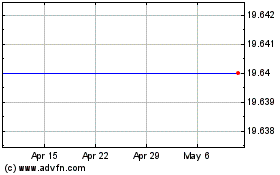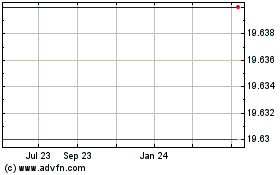Mayer failed on costs, doubled down on strategy, sealing
company's fate
By Douglas MacMillan
After weeks of negotiations, Yahoo Inc. Chief Executive Marissa
Mayer struck a secret truce in April 2015 with the activist
investor who was threatening a battle for boardroom seats at the
troubled internet company.
Ms. Mayer and her executive team agreed to be more mindful about
Yahoo's rising costs. In return, the activist investor, Starboard
Value LP CEO Jeffrey Smith, agreed to withdraw his board
nominations. The talks haven't been previously reported.
At an employee meeting later, Ms. Mayer played down the threat
from Starboard. One person at the meeting recalls her saying: "Some
of our investors think they own more of the company than they
actually do."
Then Yahoo's costs ballooned. It paid $20 million for the rights
to the National Football League's first streaming-only game
broadcast, a matchup of the Buffalo Bills and Jacksonville Jaguars.
Yahoo bought shopping site Polyvore Inc. for more than $160
million, triple what Yahoo's top deal-making executive estimated it
was worth, according to two people familiar with the matter.
In the first two quarters after the truce, Yahoo's total
expenses rose an average of 21%, compared with increases of less
than 6% a year earlier.
As tough as her job was from the start, Ms. Mayer made things
even worse after Starboard began prodding Yahoo, according to
interviews with more than two dozen investors, current and former
Yahoo employees, and other people who worked closely with her.
She failed to produce the pledged cost savings, plunged even
deeper into her turnaround efforts and clung to the idea that she
was going to save Yahoo, even when it became clear to insiders and
other observers that the company was beyond saving.
Ms. Mayer and Mr. Smith declined to comment for this article.
But his frustration boiled over into a revolt that began in
November with a public letter-writing campaign and ended this
spring with Starboard taking nearly half of Yahoo's board seats and
helping to force an auction of Yahoo's web properties. Final bids
are expected soon.
Yahoo's sale would cap the stunning fall of Ms. Mayer, 41 years
old, who was widely hailed as one of the most promising executives
in Silicon Valley when hired as Yahoo's president and CEO in July
2012.
She has defended her strategy by stressing that growth is the
lifeblood of internet businesses.
In March, though, Ms. Mayer told interviewer Charlie Rose that
one lesson she has learned is that pacing and timing are important
in a turnaround. "I think there are some things that we probably
did too quickly," she said. "I think there are some things that we
probably did too slowly and, you know, not enough."
Her arrival brought a jolt of optimism that Yahoo could be
turned around despite losing users and advertising dollars to
companies such as Google, now part of Alphabet Inc., and Facebook
Inc.
Supporters and critics say Ms. Mayer took on a nearly impossible
mission at Yahoo, bringing fresh energy and talent to a company
many had left for dead. Under her leadership, Yahoo has returned
$9.8 billion to shareholders.
As the turnaround stalled, though, Ms. Mayer faced a difficult
decision: yield to Mr. Smith's demands to prune Yahoo's costs and
her own ambitions, or defy the activist investor and swing for the
fences.
"Her core mistake was this belief that she could reinvent
Yahoo," says a former senior executive who left the company last
year. "There was an element of her being a true believer when
everyone else had stopped."
Ms. Mayer came to Yahoo for redemption after her rise at Google
stalled. Yahoo had churned in five years through a half-dozen CEOs,
who failed to stem ad-revenue declines and defections by top
engineers.
She instantly became one of the highest-profile corporate
executives in the U.S., and her appeal widened when she gave birth
to her first child 2 1/2 months into the job at Yahoo and put a
nursery in the office adjoining hers.
Ms. Mayer spent her first two years at Yahoo launching new
businesses and acquiring dozens of mobile software startups. Their
engineers began building smartphone apps, and she also ramped up
investment in web search, a long-neglected area.
She has said the investments generated significant and growing
revenue from mobile ads, a business that didn't exist at Yahoo when
she arrived. She said the acquisitions, improved perks for
employees and digital-media partnerships were necessary to
reinvigorate the company as a destination for web surfers and
coveted brand for advertisers.
Still, the new projects failed to create enough growth to offset
Yahoo's declining business in banner ads. Revenue remained
stagnant, and profitability kept shrinking.
In September 2014, Starboard told Ms. Mayer in a letter it had
bought a stake in Yahoo and complained that the company had "a
bloated cost structure."
Ms. Mayer worried that Mr. Smith could be a serious threat in a
proxy contest, according to people familiar with her thinking. In
October 2014, shareholders replaced the entire board of directors
at Olive Garden owner Darden Restaurants Inc. with a board led by
Mr. Smith.
Ms. Mayer invited Mr. Smith to meet at Yahoo's headquarters in
Sunnyvale, Calif., and they met several more times in the next six
months. Starboard's stake was smaller than the 5% required for
public disclosure.
Mr. Smith pushed for Yahoo to return billions of dollars to
shareholders, spin off its stake in Chinese internet giant Alibaba
Group Holding Ltd. and cut annual costs by more than 10%.
Starboard also called for Yahoo to explore a combination with
another fading internet icon, AOL Inc., but later backed away from
the idea.
Yahoo's Ms. Mayer urged Mr. Smith to keep quiet about his
proposed board nominations, and she began making major
concessions.
In January 2015, she announced a plan to spin off the Alibaba
shares. As a March proxy deadline neared, she said Yahoo would buy
back $2 billion in stock.
Mr. Smith, 44, also was assured by Ms. Mayer and Yahoo's finance
chief, Ken Goldman, that they would consider Starboard's
cost-cutting plan.
Ms. Mayer hoped she was done dealing with the activist investor
and his colleagues at Starboard.
Ms. Mayer refocused on her turnaround effort, moving more than
300 of Yahoo's roughly 11,000 employees to a secretive
mobile-search effort called Project Index.
The plan was to create an app that acts as a personal virtual
assistant to compete with Apple Inc.'s Siri, Google Now and other
robot-helpers.
Ms. Mayer described the planned app to analysts as a kind of
search engine that uses personal data about users and context, such
as their physical location, to generate smarter results.
Internally, she called Project Index a "bet-the-company" strategy
that gave Yahoo a chance at competing with Google, a person
familiar with the matter says.
People briefed on Project Index say it was hard to achieve Ms.
Mayer's elaborate vision. Initial plans called for three years of
development, but the timeline was squeezed to complete a modest
version sooner. That happened even though Project Index's
development was stopped and then restarted more than once, the
people say.
Last summer, Ms. Mayer rankled members of her executive team
when she pushed through the Polyvore takeover, overruling Jackie
Reses, Yahoo's chief deal maker at the time and one of Ms. Mayer's
most trusted lieutenants.
Ms. Reses had estimated that Yahoo should pay no more than $50
million for Polyvore.
Ms. Mayer compared the deal to Google's acquisition of YouTube
in 2006, arguing that "you can never overpay" for a company with
the potential to land a huge new base of users. In late July, Ms.
Mayer agreed to pay $161 million in cash and up to $15 million in
stock for Polyvore.
Since the takeover, traffic to the shopping site is up 23% to
10.4 million in May, according to comScore. Yahoo says its sites
get one billion monthly visitors combined.
After expressing concerns about the Polyvore deal, Ms. Reses was
moved to a new role overseeing Yahoo's planned spinoff of the
Alibaba stake. She left a few weeks later for a job at payment
startup Square Inc.
By late summer, Ms. Mayer's troubles were growing. The trickle
of top executives leaving Yahoo had grown into a steady stream. It
got easier to find an open space in the parking lot -- nearly
impossible during normal work hours in 2013 and 2014 -- as
employees arrived later and left earlier, according to several
former Yahoo executives.
At an August meeting after Yahoo reported its first quarterly
loss under her, she asked senior executives to write her an email
pledging to stay at the company for at least three more years.
Mr. Goldman, Yahoo's finance chief, agreed to the three-year
pledge. Other executives left the room feeling unsure about their
own willingness to commit, one of the people says.
Starboard's Mr. Smith decided to go public with his case against
Yahoo. In a Nov. 19 letter to Ms. Mayer and Yahoo Chairman Maynard
Webb Jr., the New York investor fumed about Ms. Mayer's "dismissive
approach to our serious concerns about the current situation at
Yahoo." Mr. Smith urged it to halt the Alibaba spinoff and sell
Yahoo's core business.
Other large shareholders privately wrote letters to Yahoo's
board expressing similar concerns, according to people familiar
with the matter.
Over several days of deliberations at Yahoo headquarters the
weekend after Thanksgiving, Thomas McInerney, a former finance
chief at IAC/InterActiveCorp who joined Yahoo's board in 2012,
argued that concerns about the spinoff's potential tax bill would
hurt the market value of Yahoo's remaining core business, according
to a person briefed on the talks.
The Internal Revenue Service had denied Yahoo's request for a
favorable ruling on the spinoff plan.
Yahoo directors, including Ms. Mayer, voted to halt the spinoff
and consider alternative strategies, including an auction of the
company.
Ms. Mayer juggled the corporate drama with her second pregnancy,
this time with twins. Within 24 hours of her announcement on CNBC
that the spinoff was canceled, she rushed to a hospital to deliver
her daughters.
From her hospital bed, Ms. Mayer called Mr. Webb to discuss the
company's next steps, according to a person familiar with the
matter.
By then, though, Ms. Mayer had limited options. The board's Feb.
2 announcement that it would explore "strategic alternatives" hung
a for-sale sign on Yahoo's core business.
She also was concerned about a possible boardroom coup by
Starboard and belatedly conceded on new cost cuts. In February, she
announced plans to reduce Yahoo's workforce by 15% and save $400
million a year.
In March, Ms. Mayer said in the interview with Mr. Rose that
said she needed three more years for her turnaround and hoped to be
running Yahoo a year later. "I don't think the story is yet played
out," she said.
But her power was fading. Yahoo's board worried that a proxy
battle with Starboard would jeopardize the auction process. To
avert a battle, directors agreed to put Mr. Smith and three of his
nominees on the board.
If Yahoo is sold and Ms. Mayer is terminated as a result, she
stands to receive about $55 million. Since joining Yahoo, she has
received $118.2 million in cash and equity compensation.
Final bids from suitors, which include Verizon Communications
Inc. and private-equity firm TPG, are expected sometime in July.
People close to the bidders say some of the business plans don't
include Ms. Mayer at all.
--David Benoit and Joann S. Lublin contributed to this
article.
(END) Dow Jones Newswires
June 18, 2016 02:47 ET (06:47 GMT)
Copyright (c) 2016 Dow Jones & Company, Inc.
Altaba (NASDAQ:AABA)
Historical Stock Chart
From Mar 2024 to Apr 2024

Altaba (NASDAQ:AABA)
Historical Stock Chart
From Apr 2023 to Apr 2024
